Catch up with Cannes winner Sean Baker’s earlier films, plus more of the week’s best
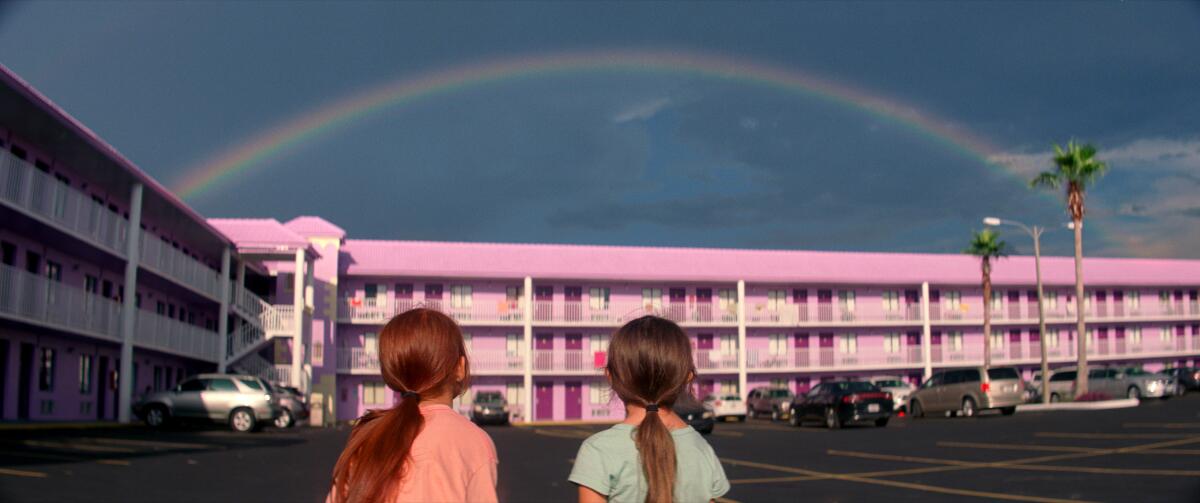
- Share via
Hello! I’m Mark Olsen. Welcome to another edition of your regular field guide to a world of Only Good Movies.
It is always exciting when former Times film critic Kenneth Turan returns to our pages. This week he spoke to Polish filmmaker Agnieszka Holland about her new film “Green Border,” in theaters now.
“Green Border” tells the story of refugees from the Middle East and Africa attempting to reach the EU through the dense forests between Belarus and Poland. The film generated extreme controversy in Poland, including pushback and interference from the government, causing the director to hire full-time bodyguards.
The 75-year-old Holland, a three-time Oscar nominee, was already in the middle of production on her next film in Berlin when she spoke to Turan.
All of the attention on the film pushed it to become one of the year’s top grossers in Poland. Seeing audiences open to the conversations the film generated was even more meaningful to Holland, who said, “I never had such long and important discussions with the audience, people staying for hours after the screening. Our courage to speak openly gave courage to many people. It was very touching to see this.”
Holland said problems such as the ones the film addressed must be faced head-on. “It’s like when a tooth is sick, it gets worse and worse,” she said. “If you don’t treat it early enough, you are going to lose it. The past which was never healed is frankly still present.”
Sean Baker’s ‘Tangerine’ and ‘The Florida Project’
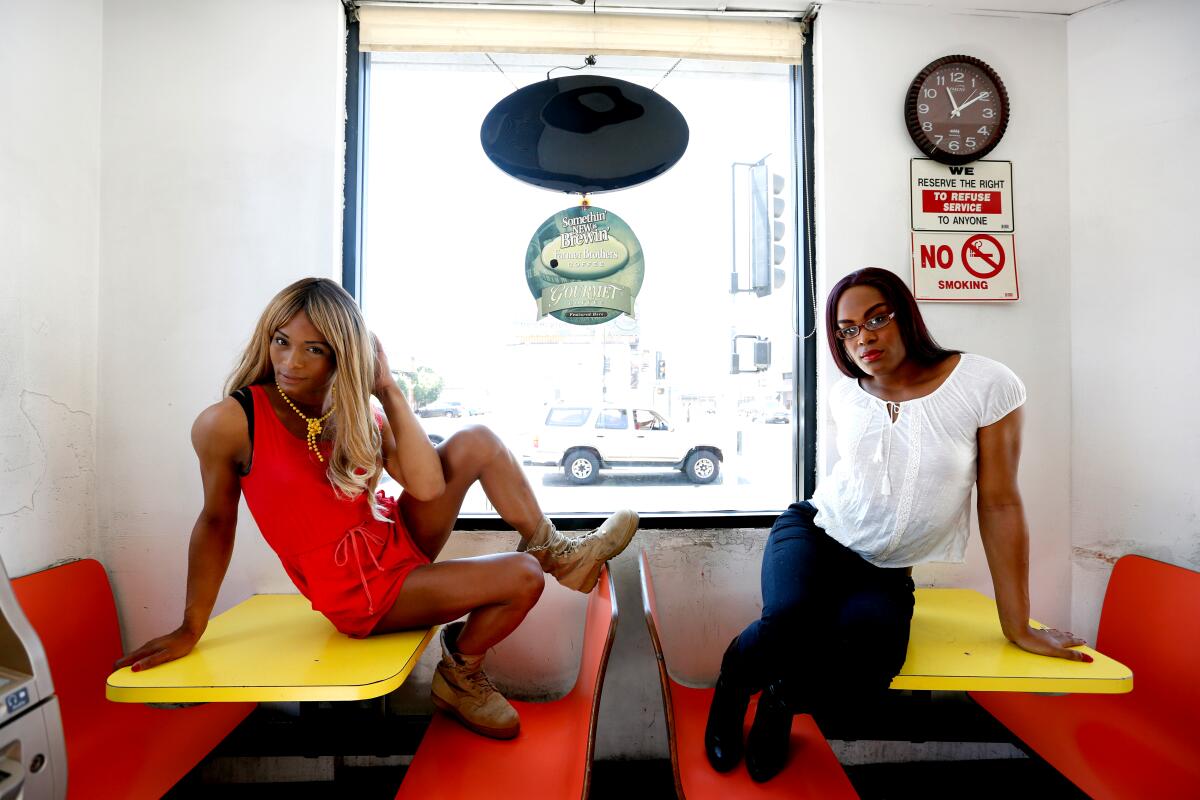
When Sean Baker’s “Anora” won the Palme d’Or at the recent Cannes Film Festival, it felt like a culmination of many years of work from the filmmaker as well as the larger American independent film community. With “Anora” not hitting theaters until later in the fall, now is a good time for audiences to catch up on Baker’s unique, immersive style, which finds him setting fictional stories within very real worlds, often mixing professional actors with first-time performers.
On Friday, Saturday and Sunday the New Beverly Cinema will have a double bill of two of Baker’s earlier films, 2015’s “Tangerine” and 2017’s “The Florida Project.”
When “Tangerine” came out, it garnered a lot of attention for the simple fact that it was shot on an iPhone with modified lenses. (And seeing these images on a 35mm print at the New Beverly is said to look genuinely great.) Shot on the streets of Los Angeles, the film moves between a loose, raw, you-are-there feeling and something more composed and thoughtful. The story follows two trans women, Alexandra and Sin-Dee (Mya Taylor and Kitana Kiki Rodriguez), as they go in search of someone who cheated with Sin-Dee’s boyfriend while she was in jail.
The film captures everyday life on the street but also has a wild, slapstick energy all its own.
As Taylor said in an interview in the doughnut shop that became a central location for the film, “Nobody wants to sit inside the theater with a bunch of crying, sad people. It definitely showed the life around Donut Time, but it’s all about the characters too.”
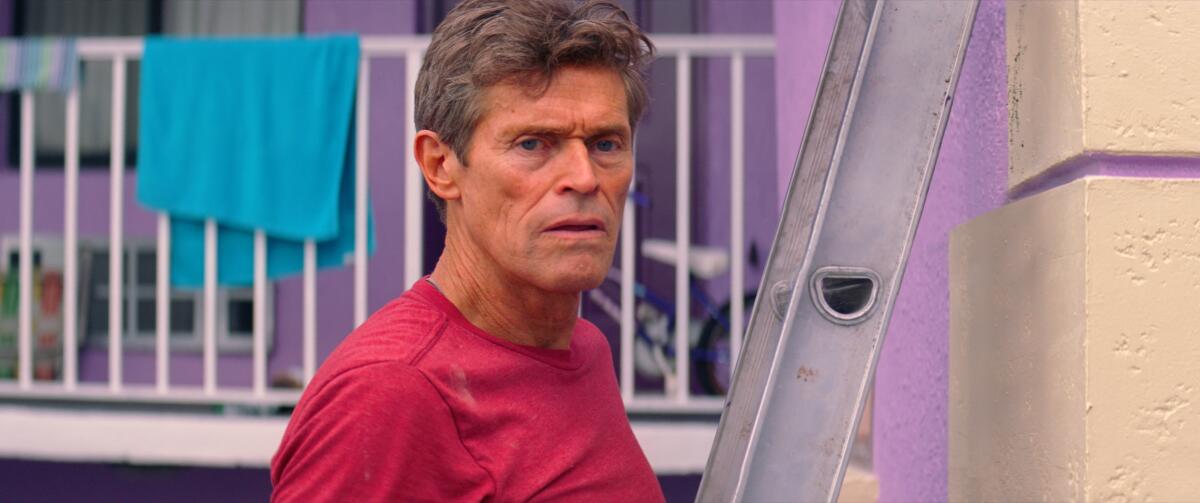
“The Florida Project” explores a different subculture, this time on the fringes of Orlando, Fla., in the shadow of Disney World. A 6-year-old girl named Moonee (Brooklynn Kimberly Prince) lives with her mother at a motel named the Magic Castle. Moonee turns the seedy ramshackle site into a playground of wonder overseen by manager Bobby (Willem Dafoe in a Academy Award-nominated performance).
As Justin Chang put it in his review at the time, “‘The Florida Project’ has the same intimately searching spirit and fascination with marginalized subcultures as ‘Tangerine,’ but it’s also something greater: Scene by scene, it assembles one of the most infectious and thrillingly alive portraits of childhood I’ve ever seen. Imagine a Sunshine State riff on ‘Los Olvidados’ or ‘Bicycle Thieves,’ slathered in sherbet hues and sprinkled with Pop Rocks, and you’ll get some sense of the strange, sun-scorched beauty of Baker’s accomplishment. He has made a dazzling neorealist sugar rush of a movie.”
Annie Baker’s ‘Janet Planet’
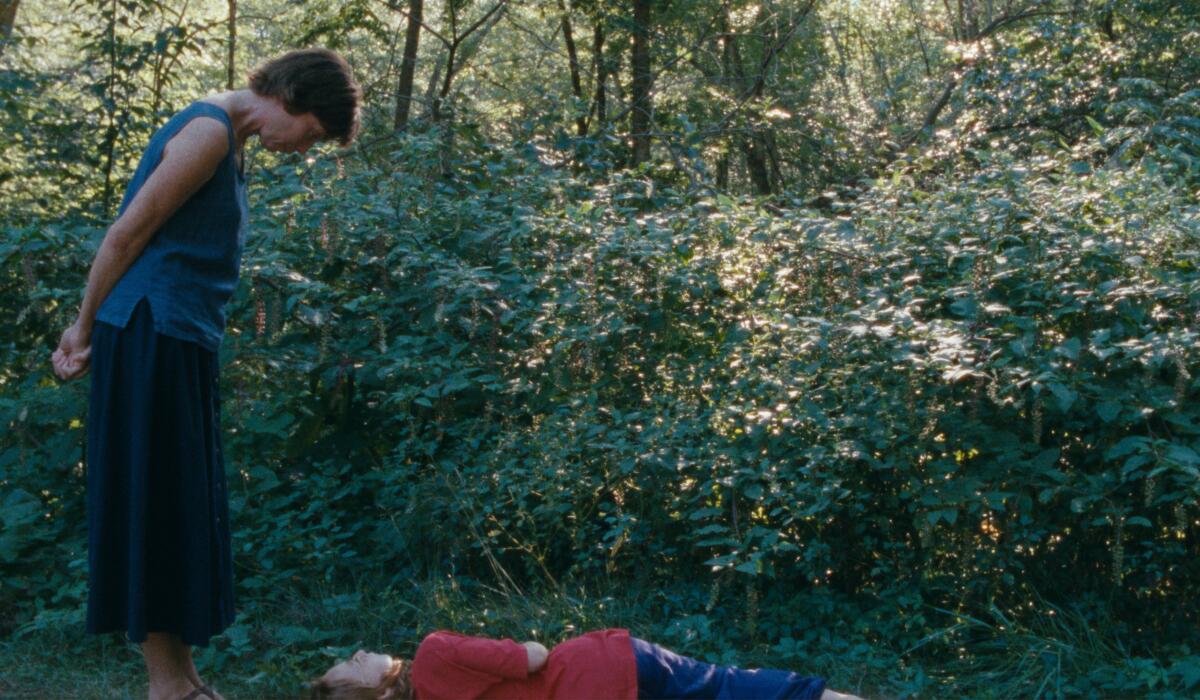
The filmmaking debut from acclaimed playwright Annie Baker, “Janet Planet” is a quiet, subtle movie that grows into a startling emotional depth. In Western Massachusetts in the summer of 1991, Janet (Julianne Nicholson) is an acupuncturist and single mother who finds her plans for the summer upended when her 11-year-old daughter, Lacy (Zoe Ziegler), unexpectedly returns home from camp. The two of them are locked in a strange, low-key push-pull, as Zoe demands much of her mother’s time and attention even as she is beginning to understand how Janet has a life of her own.
Times theater critic Charles McNulty reviewed the film, writing, “The title may be ‘Janet Planet,’ but it’s Lacy’s movie. Baker follows the girl’s inner growth with a horticulturist’s patient eye. The camera never attempts to extract more from Lacy than is truthful in the moment. Childhood has rarely seemed so unyielding.”
In a profile of Nicholson by Tim Grierson, Baker said, “Julianne knows how to play five different things at the same time. She knows how to play someone who’s feeling a lot of passion and also disassociating. Someone who is in love with her daughter and alienated from her. Someone who’s paying attention and also distracted. All those contradictions were so important for the character — you have to find a person who can play contradictions, and she does that very naturally.”
Other points of interest
Catherine Breillat’s ‘Last Summer’
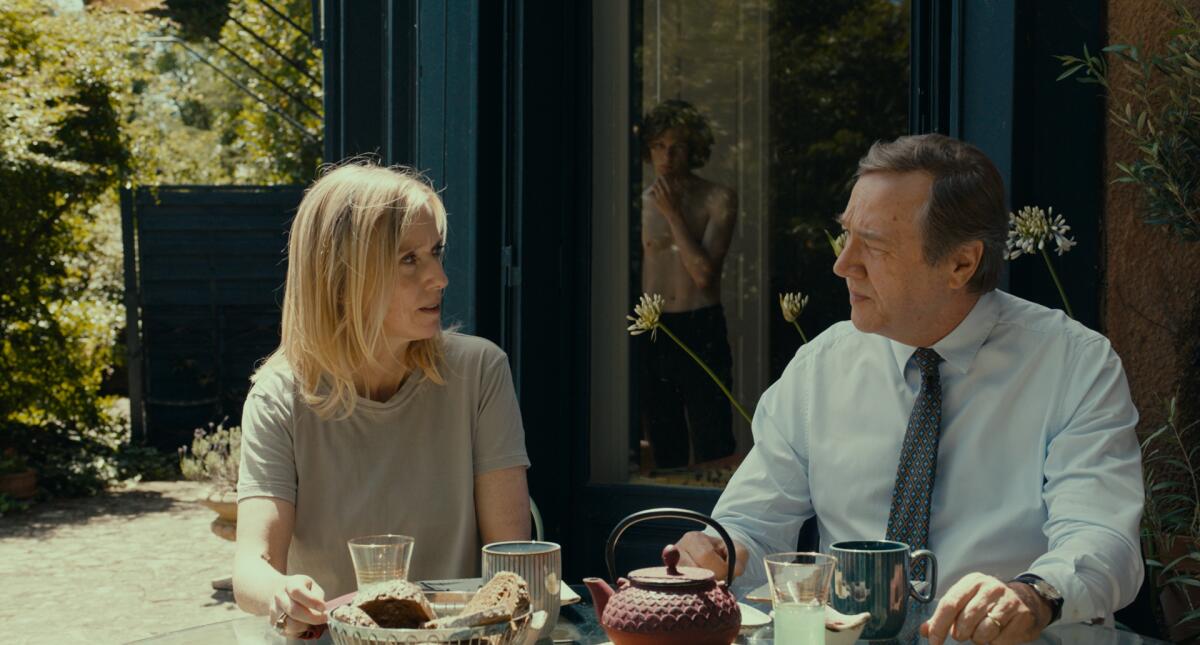
The first film in 10 years from French filmmaker Catherine Breillat finds her still able to push audiences’ buttons with deep insights into the tempestuous dynamics between men and women with a special eye to generational gaps. “Last Summer” is an adaptation of the 2019 Danish film “Queen of Hearts” — generated by producer Saïd Ben Saïd much as he did with Brian De Palma’s “Passion” — in which a middle-aged female lawyer enters into an affair with her teenage stepson.
Léa Drucker’s unsparing performance as Anne, a woman whose life quickly veers out of control as she gives herself over to illicit passions, grounds the film. Even as she betrays everyone in her life, she seems all too human, perhaps because of her bad decisions most of all.
Breillat at 75 has lost none of her taste for danger, exploring with acuity and wit situations that most people would hope to never find themselves in. (And yes, “Last Summer” would make for a doozy of a double feature with 2023’s “May December.”)
Cousin Collective at Now Instant Image Hall
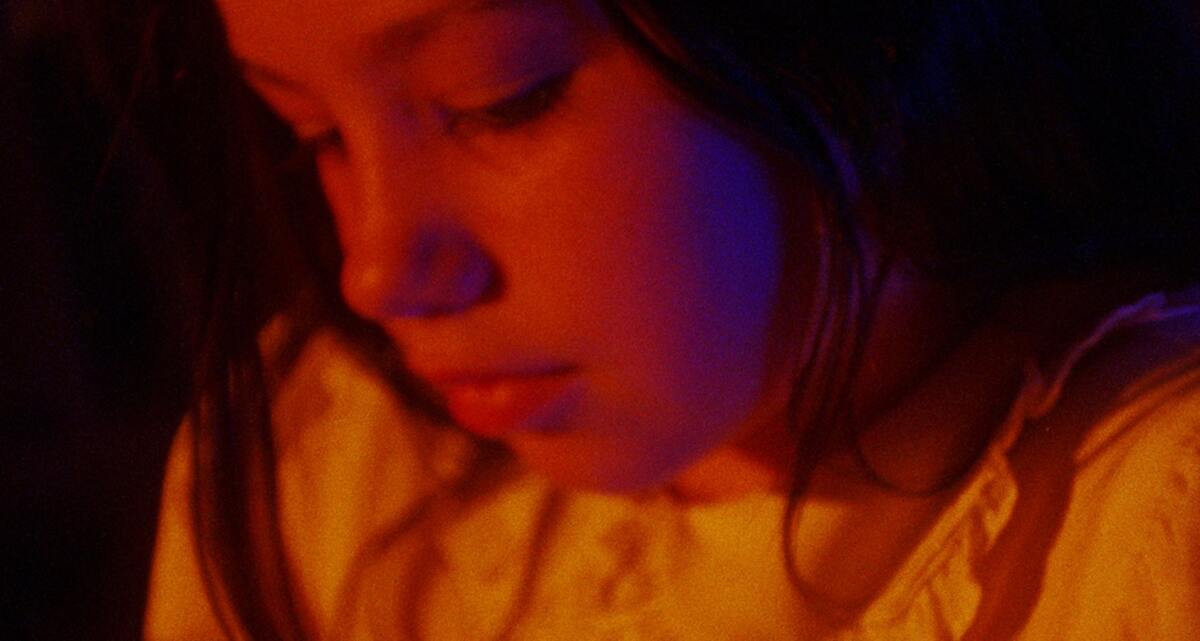
Another exciting event is happening at Now Instant Image Hall on Saturday night, with a presentation by the Indigenous artists collective known as Cousin. The program will include Victor Masayeva Jr.’s 1985 “Itam Hakam, Hopiit,” a celebration of Hopi traditions, premiering in a newly remastered Hopi-language version.
Also screening will be the Los Angeles premiere of Rhayne Vermette’s 2021 “Ste. Anne,” the story of a reunion between two siblings filmed in a series of historic sites.
Both artists are scheduled to attend with a conversation following the screenings.
‘Josie and the Pussycats’ at Vidiots
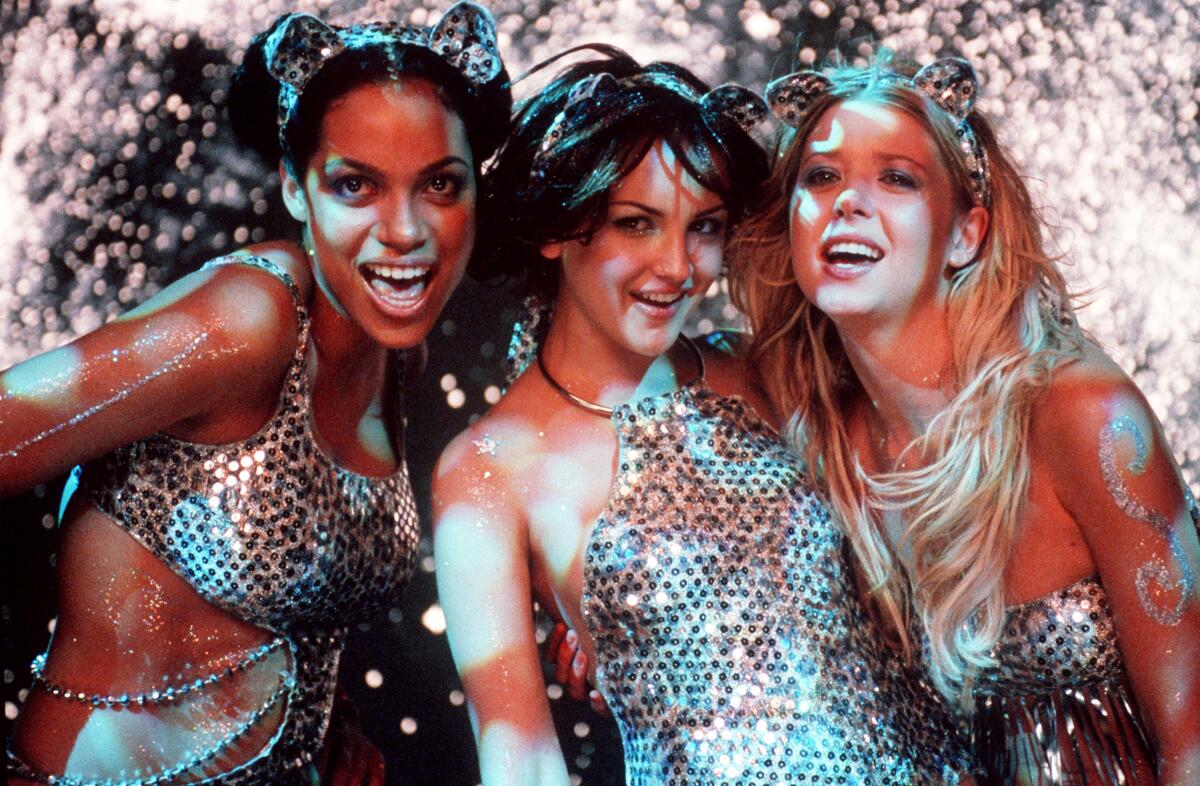
On Monday, Vidiots will screen 2001’s “Josie and the Pussycats,” presented by actor Jessica Williams, with writer-directors Harry Elfont and Deborah Kaplan there for a Q&A. This is one of those movies that is so much smarter and sharper than it needed to be, transformed from a disposable bit of IP into a frothy, funny delight. A small-town band of three friends (Rachael Lee Cook, Rosario Dawson and Tara Reid) find themselves in the hands of powerful record-industry executives (Alan Cumming and Parker Posey, both duly outrageous) who want to make them into a product.
In his original review of the film, Kenneth Turan wrote, “A sweet-natured bubble-gum movie about the escapades of an all-girl band, ‘Josie and the Pussycats,’ like those venerable Frankie and Annette beach movies, gets a lot of mileage out of its spirited performers and their peppy music. It’s clearly aimed at a Clearasil audience, but if anyone older happens to wander in, they won’t be significantly worse for the experience.”
Turan also, in a sense, fell into the trap of the movie when he noted “what must be the film’s world record number of product placements,” adding, “You could argue that a film that’s supposed to mock commercialism in modern life needs to have corporate logos on every vacant space, but it’s unnerving how cleverly ‘Josie’ manages to profit from the very thing it’s supposedly skewering. It’s a potent reminder that no matter how innocent a film may seem, there’s a Hollywood cash register behind almost every frame.”
In an article at its time of release, Rachel Abramowitz examined that very issue. As Elfont said, “I don’t feel like we’re cynical in the movie, that we’re saying all this stuff is evil. I think all we’re saying is be aware that this stuff is happening and make a choice. But the joke does continue outside of the movie theater.”
“It’s like, where does the movie start and where does product placement begin and end?” added Kaplan.
In other news
Academy invites 487 new members
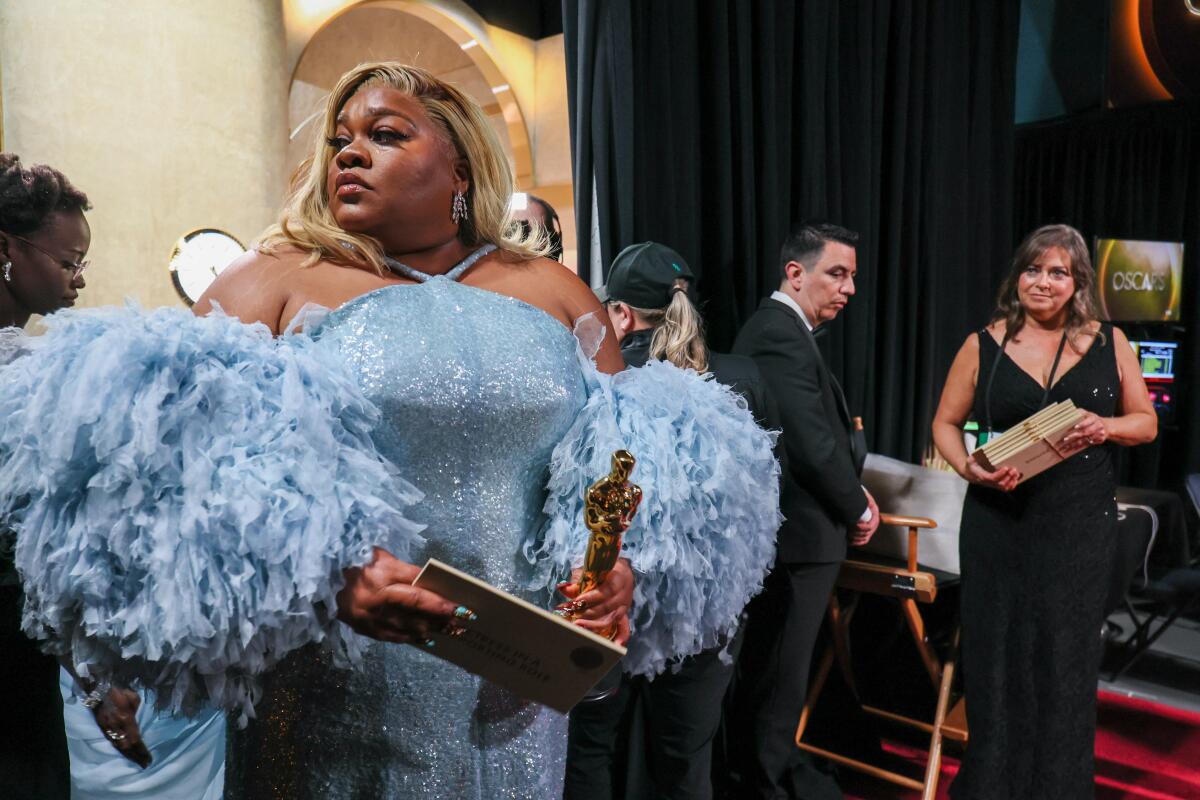
This week the Academy of Motion Picture Arts and Sciences invited 487 new members, representing 57 countries.
Among those invited were actors Lily Gladstone, Da’Vine Joy Randolph, Sandra Hüller, Jason Clarke and Greta Lee, along with directors Justine Triet, S.S. Rajamouli, Jamie Babbit, Minhal Baig, Cord Jefferson, Alice Diop, Emma Seligman, Celine Song and Boots Riley
In writing about the new invitees, Josh Rottenberg noted, “Including the new class, 35% of the academy’s members now identify as women, and 20% are from underrepresented ethnic/racial communities, maintaining and slightly improving upon last year’s benchmarks. If all invitees accept their invitations, the academy’s total membership will grow to 10,910, including 9,934 voting members.”
Elliott Gould remembers Donald Sutherland
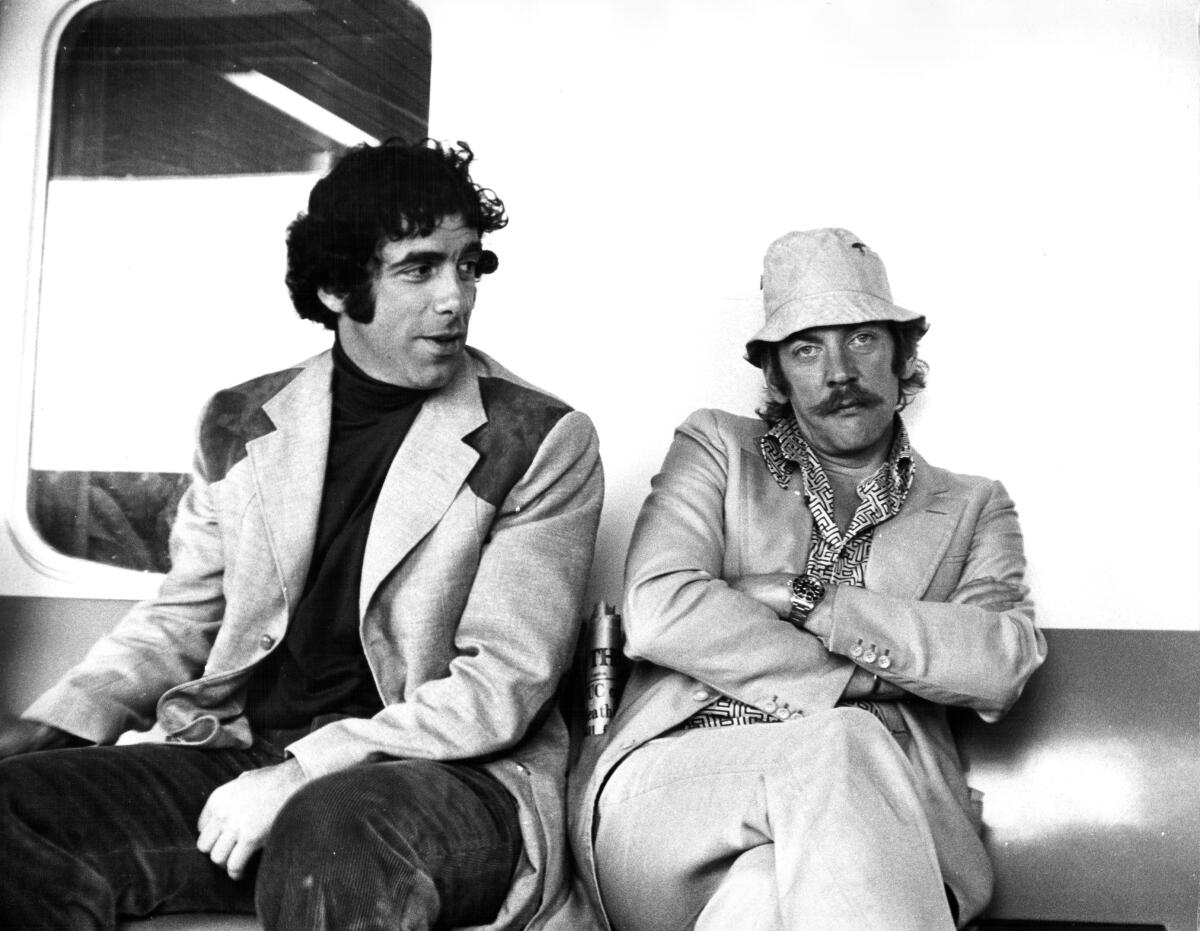
After the death last week of actor Donald Sutherland, I had the opportunity to speak to actor Elliott Gould about his friend and colleague. The two had breakout success thanks to Robert Altman’s 1970 hit “MASH.”
Asked to define the unique chemistry between them, Gould said, “Our relationship was all about nature, human nature and being a human being. And we never intellectualized about it. We couldn’t have been more diverse. As far as I’m concerned, so long as I’m living, Donald will always be with me.”
Only good movies
Get the Indie Focus newsletter, Mark Olsen's weekly guide to the world of cinema.
You may occasionally receive promotional content from the Los Angeles Times.




